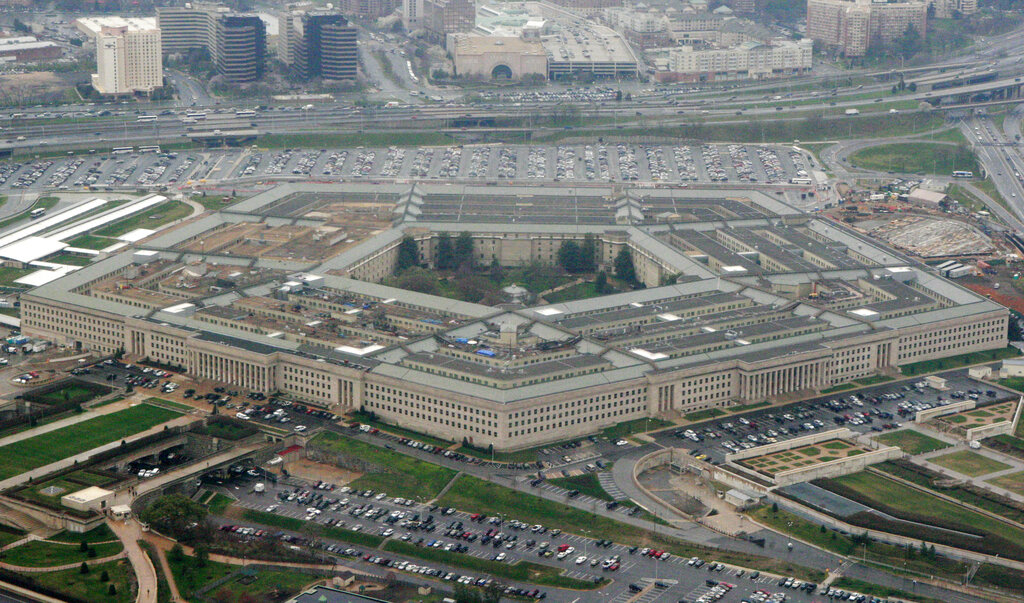That might be a good approach in the best of times but, for now, Pentagon spokesman John Kirby is likely trying to keep a bad situation from getting worse after the rockets struck a soccer field in the Golan Heights.
“There’s no reason, in our view, that this has to lead to some dramatic escalation,” Kirby told reporters. “Nobody wants a broader war, and I’m confident that we’ll be able to avoid such an outcome.”
“At Kirby’s level, words like the Federal Reserve or the president carry weight. Words can inspire action,” David Grantham, a senior fellow at the Center for a Secure Free Society, told American Family Radio.
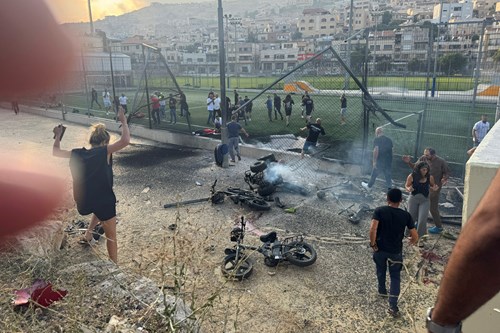 Considering Israel was already weighing a bigger war with Hezbollah in the north, after demolishing Hamas in the south, most Middle East observers now believe military action from Israel is coming after the weekend attack (pictured at right) that killed innocent civilians.
Considering Israel was already weighing a bigger war with Hezbollah in the north, after demolishing Hamas in the south, most Middle East observers now believe military action from Israel is coming after the weekend attack (pictured at right) that killed innocent civilians.
Iran-backed Hezbollah has denied responsibility but the governments in both Israel and the U.S. blame Hezbollah which frequently sends rockets over the Lebanese border.
Israel’s security cabinet has now authorized Prime Minister Benjamin Netanyahu to work out a response. Netanyahu promises that a response “will come, and it will be severe.”
It’s been less than two weeks since Netanyahu displayed a severe response. Israel on July 20 launched airstrikes against the Houthi-controlled port of Hodeidah in Yemen. That came in response to the Houthis’ drone attack in Tel Aviv that killed an Israeli man days before.
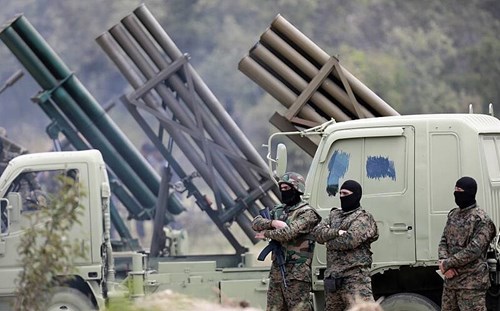 The question is whether that response will lead to full-scale war in the region, perhaps even with Iran officially joining in and not just relying on its proxies.
The question is whether that response will lead to full-scale war in the region, perhaps even with Iran officially joining in and not just relying on its proxies.
Concerned U.S. citizens aren’t the only ones paying attention to White House messaging. So are the Israelis.
U.S. trying to micromanage events
“There’s a concern here that the Biden administration has been putting too much pressure on Israel’s fight against Hamas, Hezbollah and even Iran,” Chris Mitchell, Middle East bureau chief for CBN, said on Washington Watch Monday.
There’s also a belief that the long alliance between Israel and the United States would deteriorate further in a Kamala Harris administration. The vice president and presumptive Democratic nominee, after meeting with Netanyahu last week, said she supports Israel’s right to defend itself, but pivoted quickly to her concern for the civilian population in Gaza. She also pledged to “not be silent” about the humanitarian crisis.
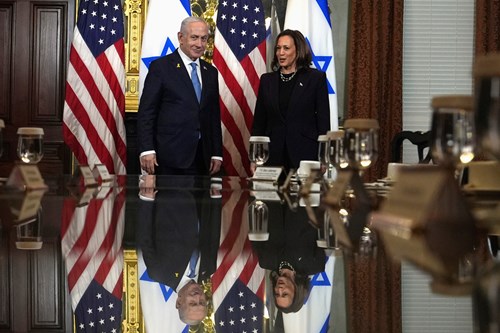 Mitchell told show host Tony Perkins that many in Israel considered Harris’ comments more forceful than what has come from Biden.
Mitchell told show host Tony Perkins that many in Israel considered Harris’ comments more forceful than what has come from Biden.
“One of the things she didn’t say was a condemnation of Hamas. She didn’t come out against Hamas but was actually against Israel. There is a concern by some that a potential Harris administration would even more forcefully put pressure on Israel as it fights its enemies,” Mitchell said.
Mitchell said neither Biden nor Harris have given proper attention to the numbers in a complex confrontation with a lot of close-quarter fighting as Israel roots out Hamas.
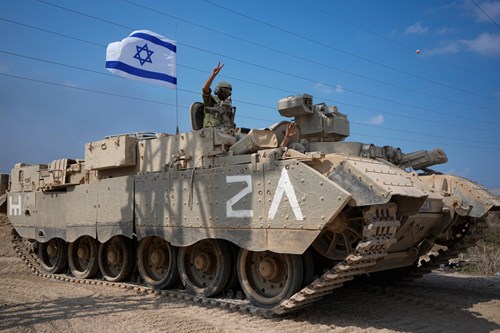 Netanyahu last week cited data from John Spencer, a retired U.S. Army officer, researcher and chair of Urban Warfare Studies at West Point. Spencer says the war’s combatant to casualty ratio of 1 to 1.5 would be “historically low for modern urban warfare.”
Netanyahu last week cited data from John Spencer, a retired U.S. Army officer, researcher and chair of Urban Warfare Studies at West Point. Spencer says the war’s combatant to casualty ratio of 1 to 1.5 would be “historically low for modern urban warfare.”
Given inflated casualty rates by Hamas, that ratio could actually be lower.
“There’s certainly a lot of suffering going on in the Gaza Strip, and people have died, but Israel is fighting a war with rules that no other army has done to try to limit civilian casualties,” Mitchell said.
Who’s in the White House almost doesn’t matter
Grantham told show host Jenna Ellis the Middle East will be a challenge for any U.S. president.
“The Middle East is notoriously difficult to manage politically, especially now when you have multiple different actors with different grievances and different frustrations,” Grantham said. “The political stance is going to be difficult to navigate because you might take one position with Palestine and take another position against Iran.”

It will take a while to get a read on a new administration because political expedience will dictate policy, Grantham said.
There’s one thing that’s easy to read right now: The threat of the war’s escalation and expansion is real. That’s why diplomats from the U.S. and other nations continue to press Israel for a limited response, Mitchell said.
Iran’s potential role is intriguing. If it delays a direct attack on Israel, for any length of time, it could eventually attack with a nuclear weapon.
The International Atomic Energy Agency believes Iran has enough enriched uranium to produce two nuclear weapons with minor tweaks. If so, Iran could be weeks or days from a nuclear weapon.
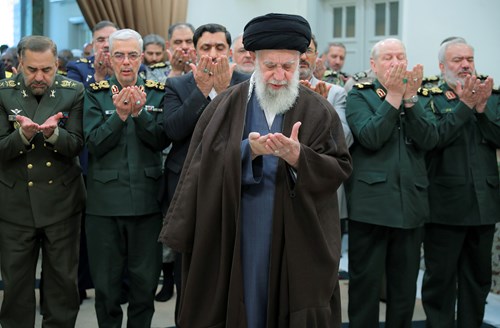 “When Israel acts to prevent Iran from developing nuclear weapons, nuclear weapons that could destroy Israel and threaten every American city, we’re not only protecting ourselves, we’re protecting you,” Netanyahu told U.S. lawmakers last week.
“When Israel acts to prevent Iran from developing nuclear weapons, nuclear weapons that could destroy Israel and threaten every American city, we’re not only protecting ourselves, we’re protecting you,” Netanyahu told U.S. lawmakers last week.
“This has been a consideration for decades," Mitchell advised. "They need to take care of Iran once and for all. They really can’t let them get to a nuclear device. It would be a game-changer here in the region. It not only threatens Israel, but it threatens the United States and the West."
When everything comes to a head, diplomats scurrying behind the scenes and forceful comments from Washington may have little impact on events.
“The outcomes may have little to do with whoever is in power,” Grantham predicted.
U.S. not 'center of everything'
He says conflict is inevitable. The question is whether that remains these “tit for tat” engagements or turns into something that draws many other nations into a much broader war.
“The United States as a country needs to prepare accordingly, needs to be mindful that there probably is not an easy way out of this, and there’s going to be conflict for the foreseeable future, and frankly, the U.S. may not have a say in how that goes,” Grantham said.
“The U.S. isn’t the center of everything, and these grievances outlast the United States.”










